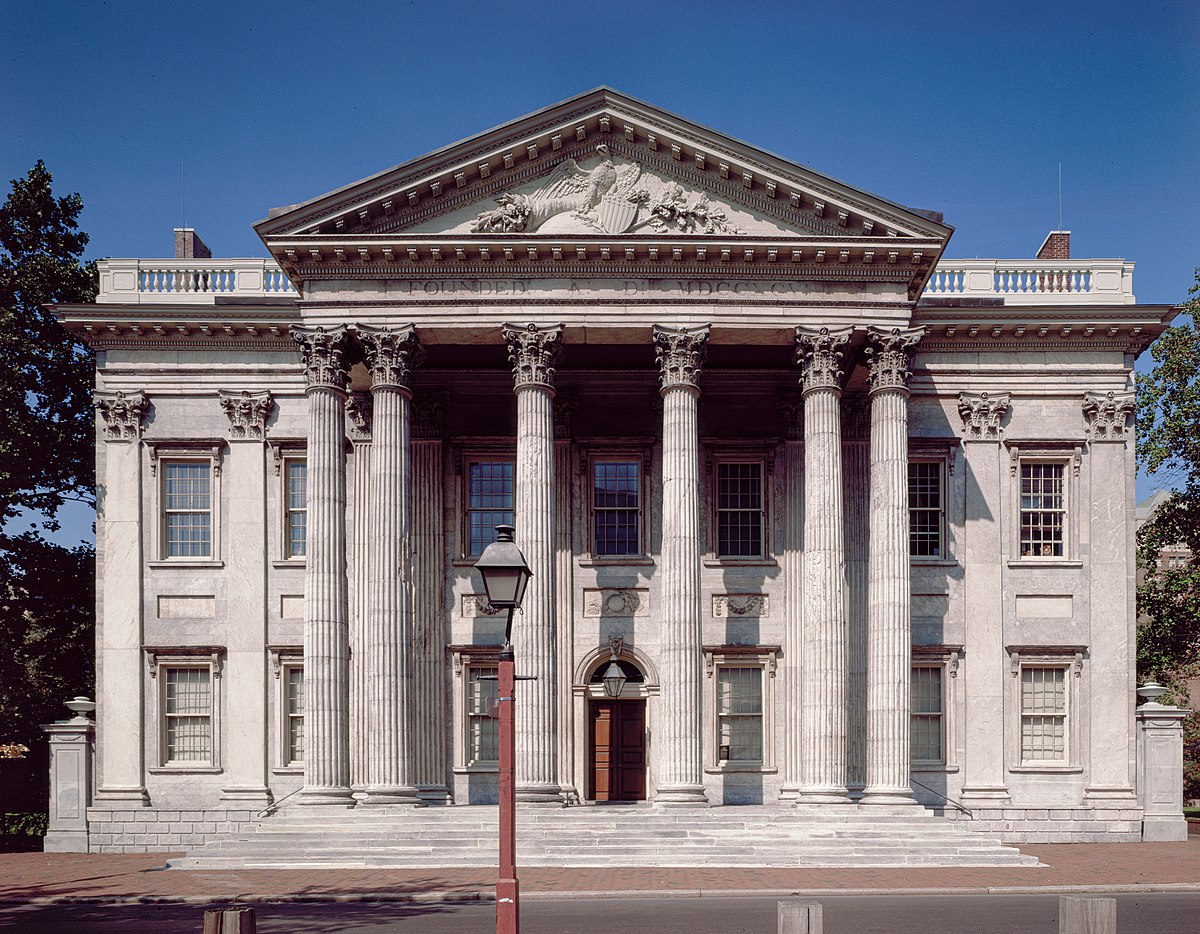
Year Created: 1791
Collection this Document is Affiliated with:
Categories of Documents:
The proposed bank is to consist of an association of persons, for the purpose of creating a joint capital, to be employed chiefly and essentially in loans. So far the object is not only lawful, but it is the mere exercise of a right which the law allows to every individual. The Bank of New York, which is not incorporated, is an example of such an association. The bill proposed ill addition that the government shall become a joint proprietor in this undertaking, and that it shall permit the bills of the company, payable on demand, to be receivable in its revenues; and stipulates that it shall not grant privileges, similar to those which are to be allowed to this company, to any others. All this is incontrovertibly within the compass of the discretion of the government. The only question is, whether it has a right to incorporate this company, in order to enable it the more effectually to accomplish ends which are in themselves lawful.
To establish such a right, it remains to show the relation of such an institution to one or more of the specified powers of the government. Accordingly it is affirmed that it has a relation, more or less direct, to the power of collecting taxes, to that of borrowing money, to that of regulating trade between the States, and to those of raising and maintaining fleets and armies. To the two former the relation Nay be said to be immediate; and in the last place it will be argued, that it is clearly within the provision which authorizes the making of all needful rules and regulations concerning the property of the United States, as the same has been practiced upon by the government.
A bank relates to the collection of taxes in two ways indirectly, by increasing the quantity of circulating medium and quickening circulation, which facilitates the means of paying directly, by creating a convenient! species of medium in which they are to be paid.
To designate or appoint the money or thing in which taxes are to be paid, is not only a proper, but a necessary exercise of the power of collecting them. Accordingly Congress, in the lava concerning the collection of the duties on imposts and tonnage, have provided that they shall be paid in gold and silver. But while it was an indispensable part of the work to say in what they should be paid, the choice of the specific thing was mere matter of discretion. The payment might have been required in the commodities themselves. Taxes in kind, however ill-judged, are not without precedents, even in the United States; or it Night have been in the paper money of the several States, or in the bills of the Bank of North America, New York and Massachusetts, all or either of them; or it might have been in bills issued under the authority of the United States.
No part of this can, it is presumed, be disputed. The appointment, then, of the money or thing in which the taxes are to be paid, is an incident to the power of collection. And among the expedients which may be adopted, is that of bills issued under the authority of the United States.
Now, the manner of issuing these bills is again matter of discretion. The government might doubtless proceed in the following manner:
It might provide that they should be issued under the direction of certain officers, payable on demand, and, in order to support their credit, and give them a ready circulation, it might, besides giving them a currency in its taxes, set apart, out of any moneys in its treasury, a given sum, and appropriate it, under the direction of those officers, as a fund for answering the bills, as presented for payment.
The constitutionality of all this would not admit of a question, and yet it would amount to the institution of a bank, with a view to the more convenient collection of taxes, For the simplest and most precise idea of a bank is, a deposit of coin, or other property, as a fund for circulating credit upon it, which is to answer the purpose of money. That such an arrangement would be equivalent to the establishment of a bank, would become obvious if the place where the fund to be set apart was kept should be made a receptacle of the moneys of all other persons who should incline to deposit them there for safe-keeping; and would become still more so, if the officers charged with the direction of the fund were authorized to make discounts at the usual rate of interest, upon good security. To deny the power of the government to add these ingredients to the plan, would be to refine away all government.
Web Address:

